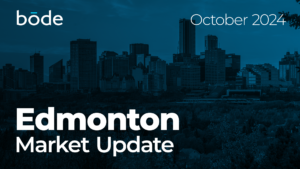Getting your home on the market
Some things to consider when getting ready to sell your home
Entering into “The Market” felt daunting, so can pricing, listing and selling your home. Here is some perspective from a homeowner.
“The Market” is just a person
You can probably recall the mounting pressure you felt leading up to your first home purchase. Perhaps some friends were “hitting the market” or “in the market”, moving out of their rental and into their first-time home – you were happy for them, but definitely had some FOMO.
You may not have known exactly what it took to “get into the market” (but probably figured you’d need a big ol’ bag of money), so you did what any normal person would do – you asked Google.
After scrolling by a few pages worth of ads, you then probably did the next normal thing and consulted Mom or Dad, an uncle, a prof, your local barista, or any of the dozens of realtors in your friends of friends network.
With a barrage of personal opinions, contradictions, and anecdotal evidence taking up space in your brain you officially deemed yourself ready to hit “the market” (for the purpose of this exercise, we’ll fast forward through the vomit-inducing elements of asking the bank to buy you a house – we’ll cover that another time).
Becoming market ready might have felt a little unceremonious – you didn’t get a badge like you might have in Girl Guides or Boy Scouts – you felt like you were just getting ready to go shopping. You were. There was nothing mystical about it – good or bad, right or wrong – you were still regular you, but now you were ready to buy a house. You were “in the market”.
Skipping by the romantics of finding and moving into your place, your housewarming party, first Christmas, dinner parties, movie nights, etc. etc. etc. – life happens and now you’re ready to hit “the market” again. You think, “buying a house was easy – but I’ve never put a house on ‘the market’ before – how do I put a price on my house?!”.
The concept of Real Estate and the Real Estate Market can seem cumbersome, complex, and even scary; but here’s some simple and refreshing news – you’re not selling your house to “the market”, you’re selling your house to a person. And just like when you set out to go shopping for your first house only to find out that buying wasn’t the stressful mountain you had made it out to be – you’re likely to come to the same conclusion with selling.
Similar to when you purchased the house you’re now listing, prospective buyers are shopping for homes and assessing location, size, condition, nearby amenities, and naturally (drum roll please)… price.
The location and size of your home are almost certain to be the same as the day you took possession (failing a substantial renovation of course). We’ll also say for argument’s sake that you’ve done what you can to put your home’s best foot forward for presentation and as such the condition is comparable to your move-in date. The parks and schools nearby are likely still intact, and the coffee shops and neighbourhood storefronts have changed to a degree but continue to provide similar offerings.
Now, how much should you put on the price tag?!
Does “the market” tell you where to price your house? Like all good existential questions – yes and no. If yes, who is she and how do I get in touch with her? If no, who does?!
Well, when you purchased your home, you were the only person to buy it – at that time, you and the previous seller mutually agreed to a price that was acceptable, you exchanged a contract, and you became the homeowner. In effect, the two of you dictated the price – irrespective of the list price. You were “the market”; you evolved from shopper, to buyer, to owner.
That evolution now has you as seller, and you’re not selling to “the market” – you’re selling to a person. While you might not know much about that person, you can rest assured they don’t care how many delicious loaves of sourdough you’ve created in your home, how much you spent to upgrade your window coverings, how many laughs you’ve shared around your kitchen’s island, or even how much you paid for your home.
It might hurt to hear, but they don’t care about your sentimentality – it’s not relevant. They’re shopping for a home – just like you were.
Armed with a budget, a wishlist, and a cup of coffee you went shopping. They will be completing the same exercise you did. They’ll look at other houses in similar neighbourhoods with similar specs (see also: comparables), assess their values, and get a feel for how far their dollar will take them before ultimately making the decision to offer or walk.
Difficult as it may be to separate your emotions, looking at your home from a shopper’s perspective can shed light on a good list price for your home – what is a price that is reflective of your home’s value relative to other options the shopper may view?
An approach that doesn’t leave you entirely blind, but certainly lacking the entire picture to help confidently price your home. That’s because until recently, homeowners have been lead to believe by generations of momentum from “experts” that there’s an exercise of academia required to appropriately price a home. This is not the case – those experts simply have a leg up when it comes to available information.
When a house is listed in your neighbourhood, even the elementary speculator takes a peek to see what the Jones’ are hoping to fetch – but unless you throw out all social norms and ask your new neighbour what they ultimately paid for their home, the final sale price remains a mystery.
This information isn’t confidential – it’s simply been kept under wraps, and as history depicts, the motivation for homeowners to possess this information has… well… lacked. By looking at actual sold data in real time, you can objectively assess the information, not only for your home – but for your community, and others just like it.
Accessing this data puts you on the front-lines of trends, identifies goal posts, and acts as a north star to either confirm what you believe to be true, or provide you the confidence to approach the market with your current strategy.
Acknowledging the fact that the final sale price of your home will come at the end of a negotiation, your goal will be to price your house at a number that invites people to the negotiating table.
Remember, only one person will be buying your house – the final sale price is dictated by what the shopper is willing to spend and what you are willing to accept. If you feel that your house is worth more than any one shopper is willing to spend, you have become “the market” once again and are the only person willing to own your house for that dollar value and perhaps have priced yourself off the negotiating table –arguably making similar houses look more attractive by comparison, and losing prospective buyers before they ever step inside your home.
But of course, having the information at your disposal, you know what it takes to mitigate that disaster, and you didn’t even have to become a high-powered data analyst to do so.
Now, what is the optimal price to list your home?
Realistically it’s the number it takes to complete the deal, ideally, you’ll be daydreaming about it over a celebratory glass of bubbly!




